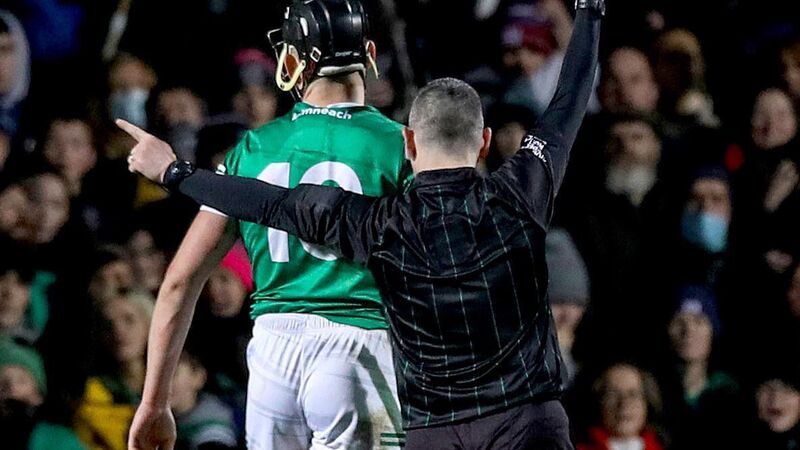Eimear Ryan: Don't fall into trap of thinking ‘edginess’ is what makes a hurler great

Limerick's Gearoid Hegarty is sent off by Fergal Horgan in the Allianz League meeting with Galway.
It is a truth universally acknowledged – at least among true crime afficionados – that eyewitness testimony is notoriously unreliable. Netflix is full of documentaries about people who were falsely accused and put away for life based on mistaken eyewitness testimony. The author Alice Sebold wrote a bestselling memoir, , about being attacked and raped while a freshman at college; late last year, Anthony Broadwater, the man she mistakenly identified as the perpetrator, was exonerated after serving 16 years in prison.
Why does this happen? Witnesses misremember details; their unconscious biases, or factors like fear, stress or adrenaline, may distort the evidence of their eyes. In addition, our brains crave narrative and are brilliant at bridging the gaps in our memories to make sense of events. Our memories are both fallible and malleable. It can be hard to remind ourselves of this fact: culturally, we put great stock in our powers of perception. I’ll believe it when I see it, says you. Or, when watching a match: Are you blind, ref?! It happened right in front of you!








